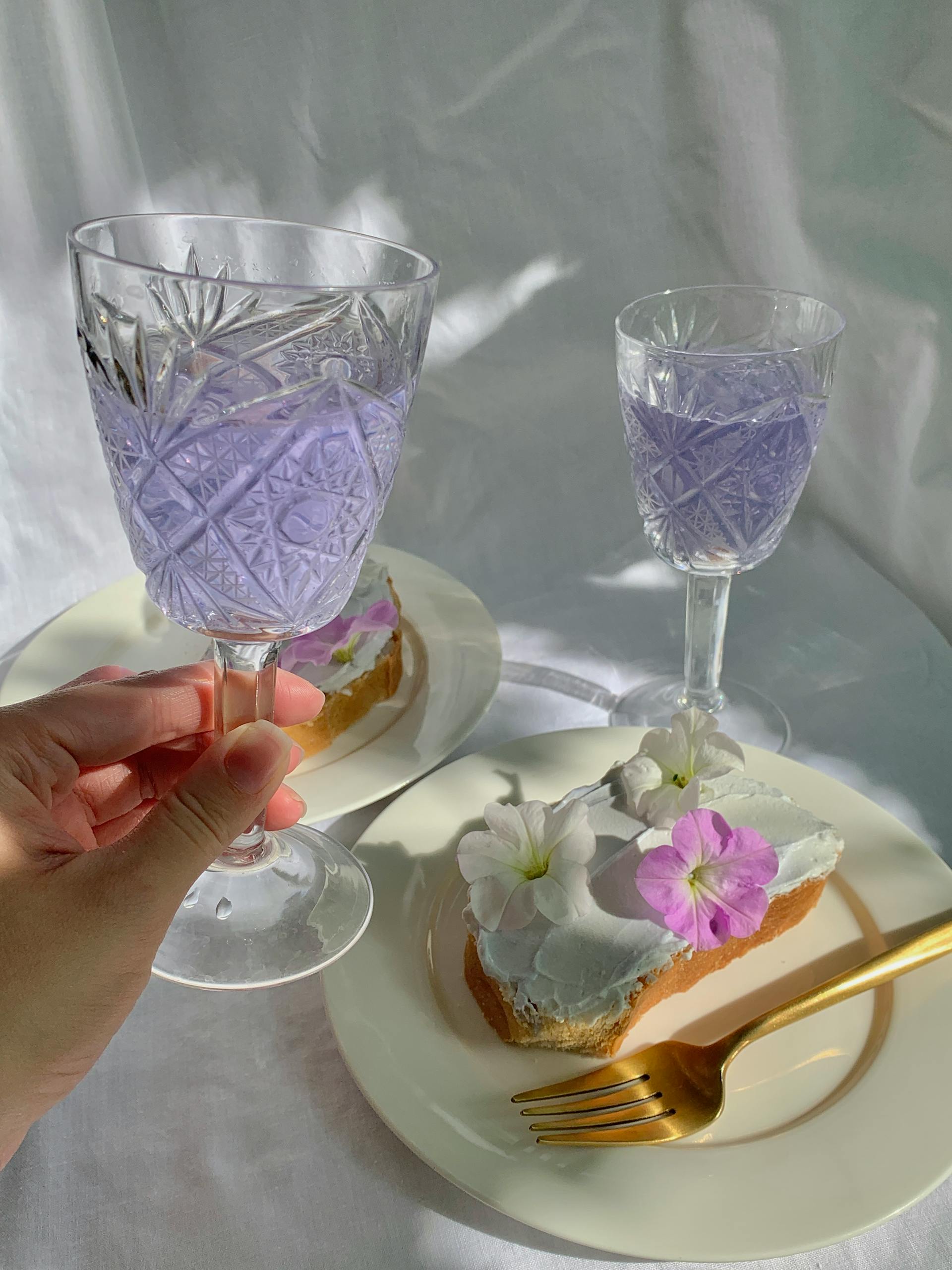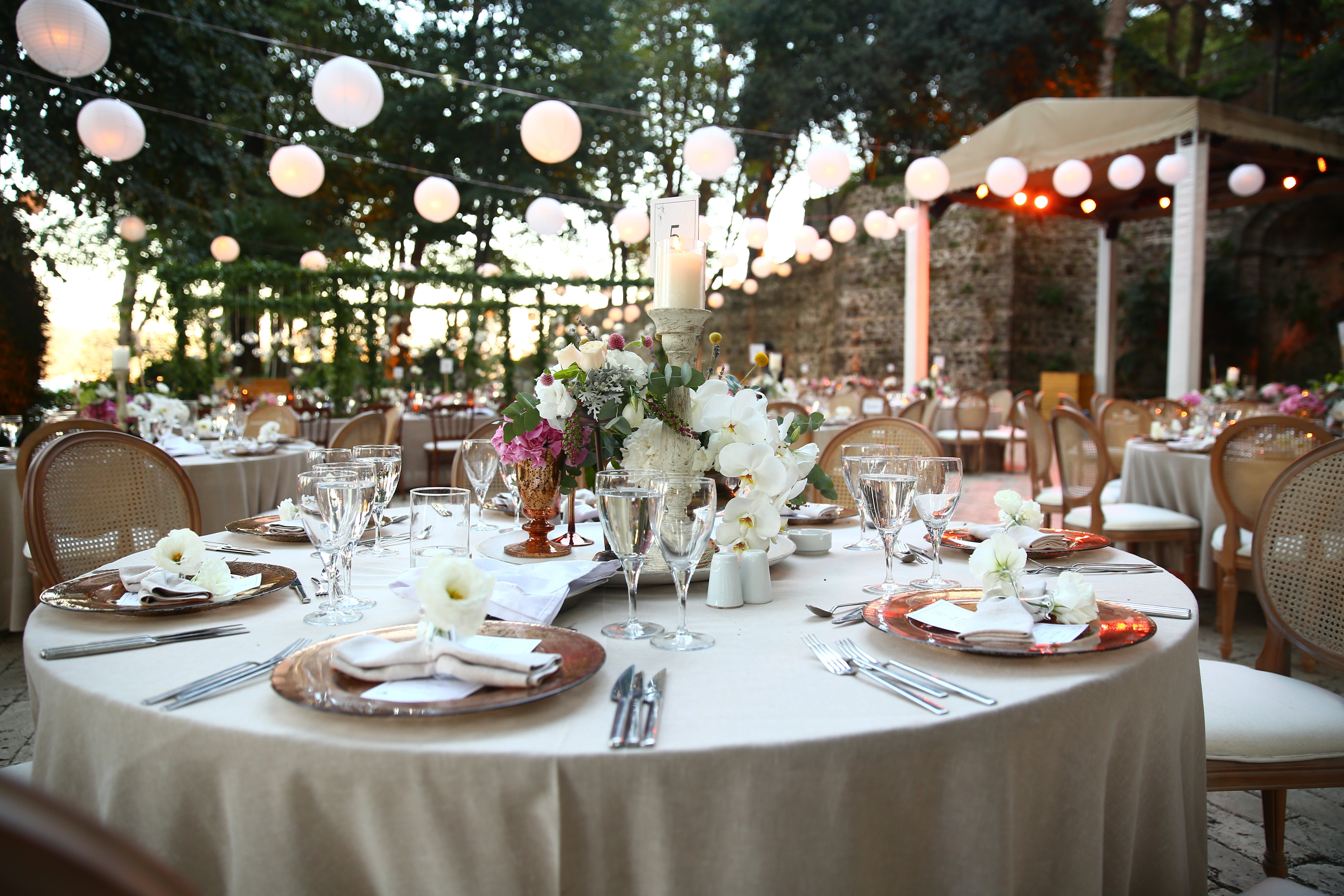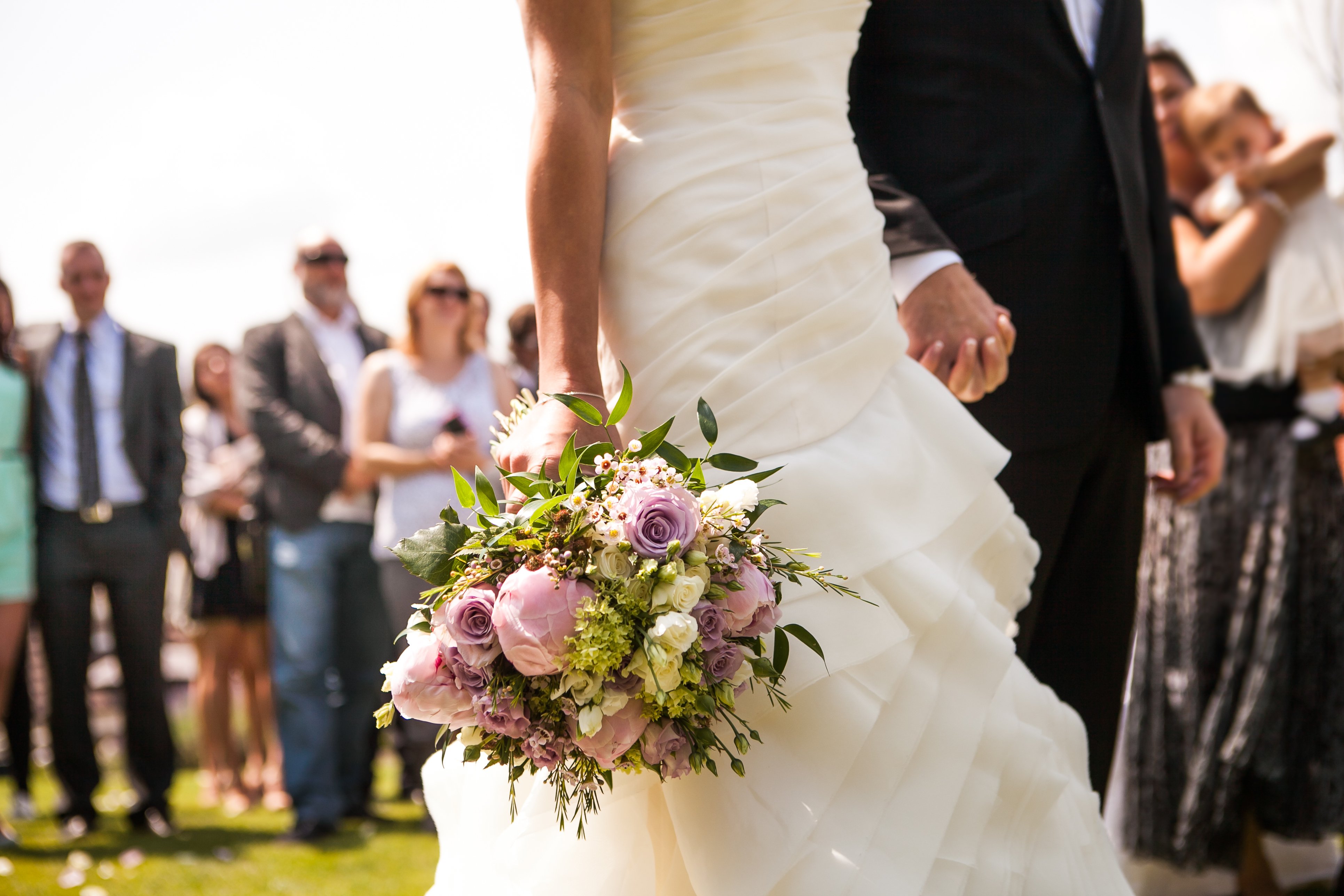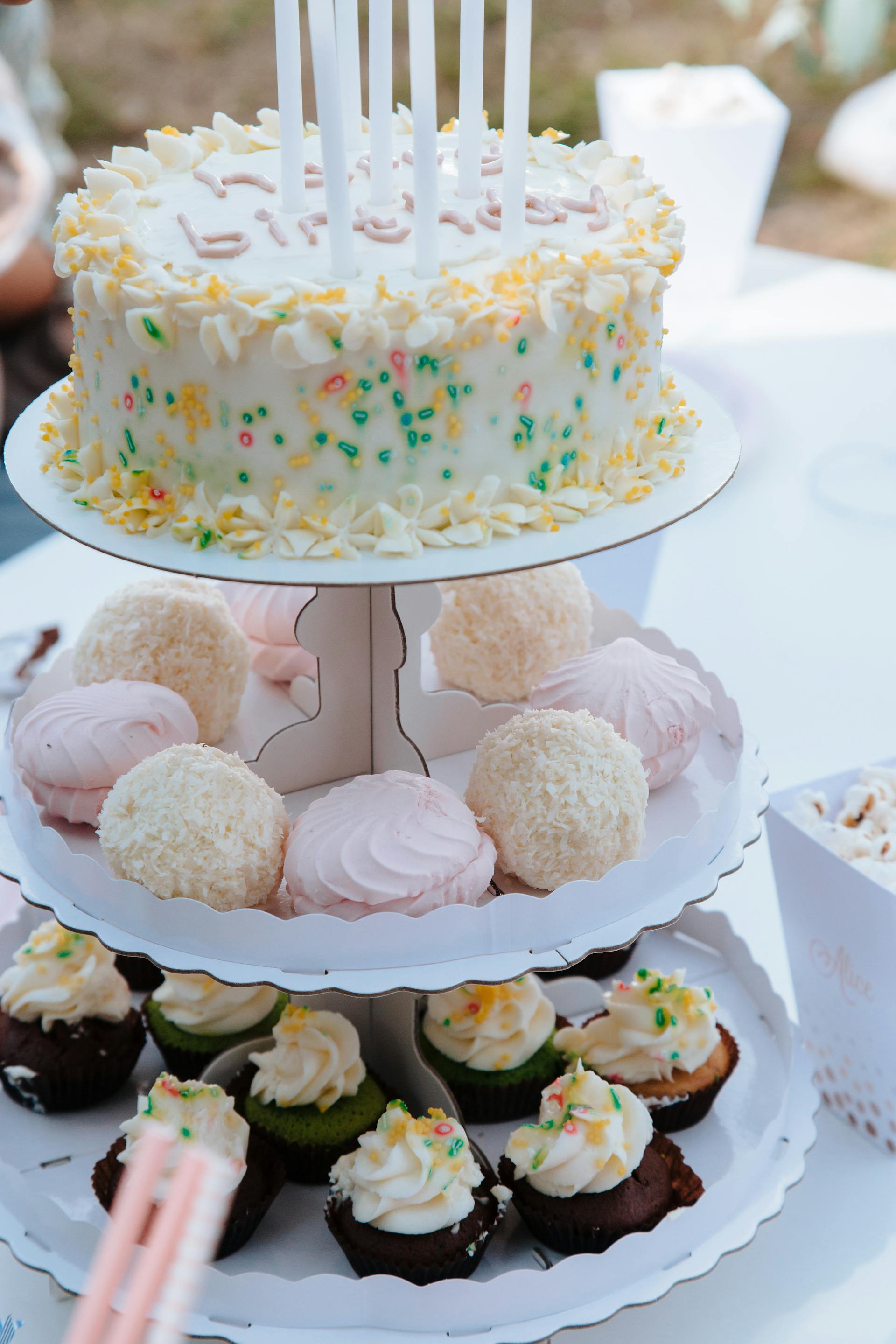
Caught in the whirlwind of wedding bliss and familial conflict, Candice’s story unravels at the seams when her mother-in-law’s antics push her to a breaking point.

A young woman in a knitted dress near a Christmas tree | Source: Shutterstock
Hey everyone, it’s Candice here, and I’ve got a story that I think a lot of you might find both infuriating and somewhat cathartic. I want to talk about my mother-in-law, Darla, but let’s start from the beginning to give you the full picture.

A group of friend celebrating new year with Bengal lights and rose champagne | Source: Shutterstock
Clark and I met in a way that felt ripped straight from a rom-com script. It was at a friend’s New Year’s Eve party. I was the girl who had just spilled her drink in a spectacular fashion, and he was the knight in shining armor with a handful of napkins.

Two glasses and napkins lying on a table | Source: Shutterstock
From that moment, our connection was undeniable, and our relationship blossomed beautifully. Clark proposed two years later, in a quiet, intimate setting that was so us. It was perfect, or so I thought until the dynamics of family ties introduced me to a new kind of challenge: my future mother-in-law, Darla.

A boyfriend surprising his girlfriend with a romantic proposal | Source: Shutterstock
My first encounter with Darla should have been a red flag. It was at a family dinner, meant to welcome me into the fold. Darla, with a tight smile, presented me with a bouquet — nearly identical to the one she’d given Clark’s cousin just moments before, but somehow, the gesture felt less warm, more obligatory.

A Christmas tree | Source: Pexels
Fast forward to our first Christmas together. Darla went on and on about the perfect presents she found for Clark’s cousins. When I opened mine, it was a carbon copy of their gifts. “I ran out of time for you,” she said with a shrug, “but really, you should try to be more like them anyway.” I was stunned into silence, a theme that would repeat itself more times than I’d care to admit.

A brown gift box | Source: Pexels
The following Christmas wasn’t any better. Clark received kitchenware from his mom, and Darla loudly proclaimed, “Oh no, get the receipt for that! You don’t need any help making yourself fatter!” Her words hung in the air, a clear attempt to shame us both under the guise of humor.

A top view of wooden spoons | Source: Pexels
Our engagement party brought its own set of humiliations. My dear grandmother, a woman of simple means and tastes, gifted us elegant, engraved Mikasa crystal champagne flutes. Before I could even finish my thank yous, Darla stood up, interrupted me, and said, “Those are not nice enough for you. Take these instead; they’re just your size.”

Pastries with cream and champagne flutes on a table | Source: Pexels
She handed me a box containing the most gaudy goblets you could imagine. Real, over-the-top goblets. My grandmother was visibly embarrassed, and in a moment of frustration, I retorted, “I’d love to see what you use at home; they’re probably as bad as your jokes.”

A person holding a goblet wine glass over a plate with flowers on bread | Source: Pexels
The rehearsal dinner was another spectacle. Darla managed to insult my mother, my aunt, and my petite maid of honor by calling them heavy during her speeches. The room fell into an uncomfortable silence, and I felt my patience wearing thin.

A white color and wooden wedding table decorated for a wedding | Source: Shutterstock
Then came the wedding day, the day I had dreamed of, meticulously planned to the smallest detail. The ceremony was beautiful, and everything was going according to plan. Guests had started to arrive, the anticipation building.

A bride and groom holding hands at their wedding | Source: Shutterstock
But Darla was conspicuously late. Just as the ceremony began, she made her grand entrance, draped in a black dress so somber it was more suited for a funeral than a wedding. I felt my heart sink.

A senior woman in a black dress | Source: Getty Images
Later, I couldn’t help but confront her. “Why would you wear that?” I asked, my voice barely concealing my anger. Her response was chilling. “Oh, I just felt like my son marrying you was more like a funeral than a celebration.” Oh, I lost it! This was the last straw.

A senior woman having a disagreement with her daughter-in-law in the kitchen | Source: Shutterstock
The audacity and malice of her comment were both shocking and eye-opening. By now, I had fully realized that Darla was a complete disaster of a mother-in-law, and everything she did and said was aimed at insulting me and my family members.

An angry bride | Source: Getty Images
For too long, I had tried to brush off her demeaning behavior, but that moment crystallized a new resolve within me. This wasn’t just a personal slight; it was an assault on the very foundation of what Clark and I were building together.

A couple having a serious conversation | Source: Shutterstock
In the days following, Clark and I sat down for a serious conversation. It was a heart-to-heart that not only strengthened our bond but also aligned us on a course of action. For the first time, Clark saw the full extent of his mother’s disrespect — not just towards me, but towards everyone around her.

An elderly woman holding a bouquet | Source: Shutterstock
Our families were equally fed up, and even her own kin maintained a strained relationship with her, never fully severing ties but always keeping her at arm’s length.

Floating shiny balloons | Source: Pexels
Darla’s 58th birthday was on the horizon, an occasion she intended to mark with unmatched grandeur. She envisioned a lavish celebration, one that would spare no expense, promising an event filled with luxury and opulence. She poured her energy and resources into planning this epic birthday party, dreaming of a soiree that would be remembered for years to come.

Handwritten text on a white paper | Source: Shutterstock
Clark, other relatives, and I united by a shared resolve, concocted a plan. We reached out to everyone on the guest list, and the consensus was clear: it was time for Darla to understand the impact of her actions. There was a palpable sense of solidarity as each person agreed to our proposal, a silent pledge to stand up against disrespect.

Cupcakes and birthday cake on a cake-stand | Source: Pexels
The day of Darla’s birthday arrived. She had pulled out all the stops, dressing to the nines, fully expecting to be the belle of her own ball. But as she made her grand entrance, anticipation turned to disbelief, then to horror.

A reception hall decorated for a party | Source: Getty Images
The venue, meticulously adorned and ready to host scores of guests, echoed with emptiness. As I stood there, witnessing the result of our collective decision, a mix of vindication and sadness washed over me.

A crying senior lady wiping tears with her handkerchief | Source: Shutterstock
Not a single invitee was in attendance. Darla’s face, a portrait of stunned realization, turned ashen as the truth set in: her much-anticipated, extravagantly planned birthday party was a bust, a grand celebration without celebrants.
This was our collective statement, a line drawn firmly in the sand. It was a drastic measure, but one born out of desperation and a deep-seated need for respect. The emptiness of that venue spoke volumes, a silent but potent reminder that actions have consequences, and the currency of respect is invaluable.
I sometimes wonder about the look on Darla’s face when she realized that her much-anticipated celebration, for which she had paid a hefty sum, was essentially for no one. The restaurant, set for a grand party, standing empty — a stark, silent testament to the consequences of her actions. It was a harsh lesson, undoubtedly, but one we felt was necessary. If her behavior remained unchanged, she was looking at a very lonely life ahead.
This wasn’t an easy decision, and it certainly wasn’t taken lightly. But it felt like the only option left to drive home the point that her disrespect could not and would not continue to go unchecked. I often ask myself, did I do the right thing? It’s a question I still grapple with, but at the end of the day, I believe respect is foundational, and without it, relationships crumble.
I’m eager to hear your thoughts. Have you ever faced a similar dilemma? What would you have done in my shoes, and do you think our approach was justified?”
If you found this story relatable, here’s another one for you:
Imagine thinking you’re protecting the peace within your family by keeping a skeptical in-law at bay, only to have her return with what she believes is a bombshell that will blow your life apart.
Buckle up, because I’ve got a story that’s part Jerry Springer, part Maury, and all kinds of family drama. It all started with my mother-in-law, who, from day one, had it out for me.
My name is Elizabeth. I’m a 36-year-old wife and mother, and this is the story of how my life was almost ruined.
I remember the day my mother-in-law first laid her eyes on our newborn son. Instead of the typical adoration you’d expect, she quipped, “Weird eye color, exactly like your neighbor’s!”
Her words left a bitter taste in my mouth. This also marked the beginning of a silent war between us, fueled by her unfounded suspicions of infidelity.
After that, it was like living under a microscope. She always hinted that I would step out on my husband, Oliver. So, I did what any sane wife and protective mama bear would: I banned her from our home. It was a decision not taken lightly but one I deemed necessary to shield our family from her toxic presence.
But as the years ticked by, our little son Nathan grew up and started asking about his grandparents.
“Mom, why don’t I see Grandma like my friends see theirs? Don’t I have a grandpa too?”
Nathan’s question tugged at my heartstrings.
I sighed, knowing this conversation was inevitable. “Honey, you do have grandparents. Sometimes, grown-ups have disagreements, just like how sometimes you might have an argument with your friends. But it doesn’t mean we don’t love you or they don’t want to see you. It’s just… complicated.”
“Can’t we fix it? Like how you fix my toys?” he asked, his voice filled with hope and the simple logic of a child.
I smiled at his innocence. “We’re trying, sweetheart. We’re trying.”
It was this conversation that led me to cautiously reopen our doors to Nathan’s grandmother, despite the years of tension. I allowed supervised visits, hoping my son could get to know his grandmother without the shadow of our past conflicts.
Then came the day that would turn everything on its head. My mother-in-law arrived unannounced, a smug look plastered across her face, clutching an envelope like it was the Holy Grail. My husband, caught off guard, asked, “What’s that, Mom?”
She turned to me, her eyes gleaming maliciously, and declared, “DNA test results that will kick you out of this house, dear Liz!”
I tried to keep my composure. “Oliver wouldn’t test our son secretly. What are you talking about?”
With a flair for the dramatic, she announced, “Surprise! We compared the baby’s DNA with his grandfather’s. 0% match!”
Refusing to let her theatrics corner me, I calmly retrieved a box from the corner of the room and placed it on the table in front of her. The moment she opened it, her smirk faded into disbelief, followed by a startled scream, “BUT HOW??”
Leave a Reply